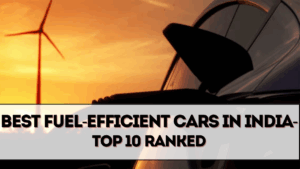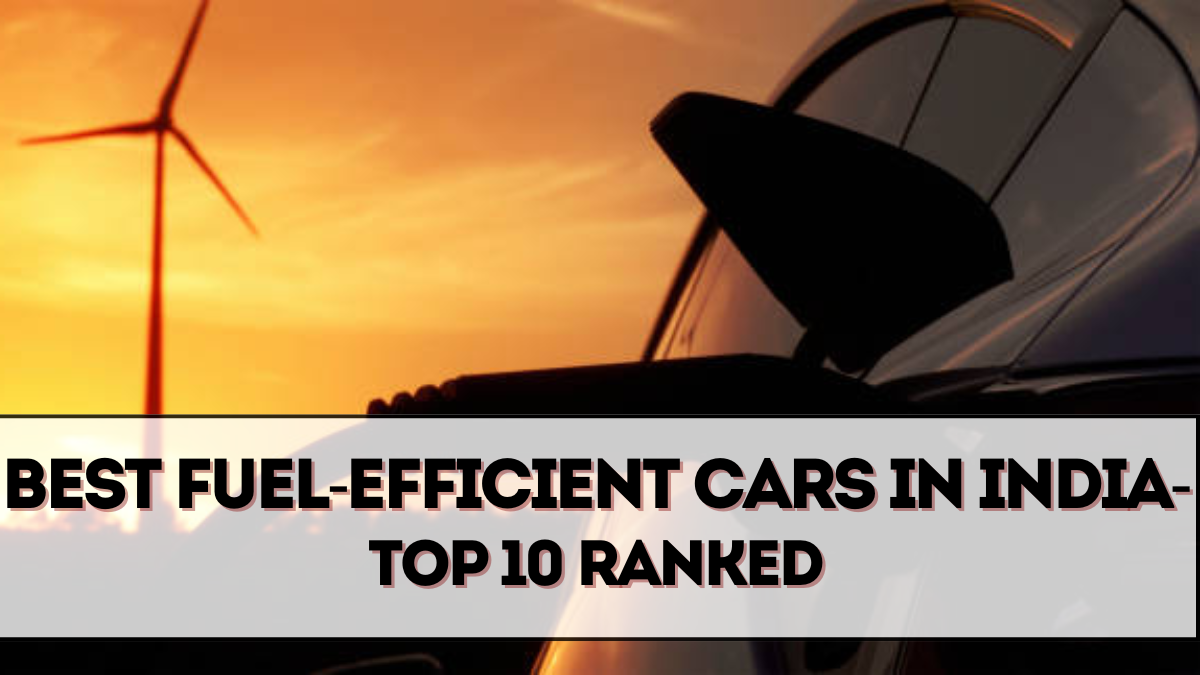With rising petrol and diesel prices, Indian buyers in September 2025 are prioritizing fuel efficiency like never before. Automakers have responded with new models and updated engines that deliver better mileage without compromising on performance. The latest 2025 cars comparison reveals that compact hatchbacks, hybrids, and even some compact SUVs dominate the list of fuel-efficient cars in India.
Mileage remains one of the most important factors in a country where fuel costs average over ₹105 per litre. This year, manufacturers like Maruti Suzuki, Toyota, Honda, and Hyundai are leading the race with highly efficient engines and hybrid technology.

Why Mileage Matters More in 2025
The 2025 cars comparison shows that fuel efficiency is now a bigger purchase factor than ever before, for reasons such as:
-
Rising fuel prices – Petrol and diesel remain expensive, making efficiency a must.
-
Increased urban traffic – Stop-and-go traffic lowers mileage, making hybrids and automatic cars more attractive.
-
Government policies – Stricter emission norms (BS7) push automakers to deliver higher efficiency.
-
Eco-conscious buyers – More Indians are considering green options like hybrids and EVs, but efficient ICE cars still dominate rural and Tier-2 demand.
Top 10 Best Fuel-Efficient Cars in India 2025
Here’s the definitive 2025 cars comparison list of India’s most fuel-efficient models ranked by mileage:
| Rank | Model | Fuel Type | Mileage (km/l or km/charge) | Price Range (₹) |
|---|---|---|---|---|
| 1 | Maruti Suzuki Celerio | Petrol/AMT | 27 km/l | 6–8 lakh |
| 2 | Toyota Urban Cruiser Hyryder Hybrid | Strong Hybrid | 26 km/l | 12–17 lakh |
| 3 | Maruti Suzuki Wagon R | Petrol/CNG | 25 km/l (Petrol), 34 km/kg (CNG) | 6–8 lakh |
| 4 | Honda City e:HEV Hybrid | Strong Hybrid | 25 km/l | 19–21 lakh |
| 5 | Hyundai Grand i10 Nios | Petrol | 24 km/l | 6–9 lakh |
| 6 | Tata Tiago CNG | CNG | 24–25 km/kg | 7–9 lakh |
| 7 | Maruti Baleno | Petrol | 23.5 km/l | 8–10 lakh |
| 8 | Maruti Alto K10 CNG | Petrol/CNG | 33 km/kg (CNG), 24 km/l petrol | 5–6.5 lakh |
| 9 | Hyundai Exter | Petrol/CNG | 23 km/l (Petrol), 32 km/kg (CNG) | 7–10 lakh |
| 10 | Tata Punch | Petrol | 20–21 km/l | 7–11 lakh |
This ranking includes both petrol and hybrid cars, showing how diverse the mileage leaders are in 2025.
Hybrids vs Petrol Cars
One key finding in the 2025 cars comparison is that hybrids are closing the gap between traditional petrol cars and EVs. Toyota’s Hyryder and Honda’s City e:HEV deliver over 25 km/l, making them attractive for long-term buyers. While they are priced higher, lower fuel costs balance out ownership expenses.
Petrol cars like Maruti Celerio and Wagon R continue to dominate budget-conscious buyers with excellent mileage under ₹10 lakh.
The Role of CNG Cars in 2025
CNG cars continue to be a popular choice in 2025 thanks to their lower running costs. Maruti Alto K10 CNG and Tata Tiago CNG offer exceptional efficiency at affordable prices. However, CNG availability is still limited to certain regions, making it less convenient for highway users compared to petrol or hybrid options.
Fuel Efficiency in SUVs
Interestingly, even compact SUVs are becoming more fuel-efficient. Hyundai Exter and Tata Punch are both part of the top 10 list, showing how automakers are balancing SUV demand with efficiency. These SUVs deliver 20–23 km/l, which was unheard of in SUVs a decade ago.
Larger SUVs like Toyota Innova Hycross Hybrid and Maruti Grand Vitara Hybrid also boast efficiency above 20 km/l, though they are not in the absolute top 10.
Buyer Trends in 2025
The 2025 cars comparison reveals clear shifts in buyer preferences:
-
Budget buyers – Choose Maruti Celerio, Wagon R, and Alto K10 for maximum savings.
-
Urban families – Prefer hybrids like Toyota Hyryder for long-term economy and low emissions.
-
Young professionals – Opt for stylish hatchbacks like Baleno or SUVs like Hyundai Exter.
-
CNG loyalists – Focus on running cost savings with Tiago CNG and Alto K10 CNG.
This variety ensures that buyers across budgets have access to efficient cars.
What Buyers Should Expect Next
Looking ahead, fuel efficiency will continue to improve as BS7 norms come into effect by December 2025. Automakers are investing heavily in:
-
Mild hybrids – Expected to deliver 20–25 km/l at affordable prices.
-
Plug-in hybrids (PHEVs) – Offering limited EV-only range with petrol backup.
-
Lightweight materials – Reducing car weight to improve mileage.
-
EV adoption – Although EVs dominate range efficiency, ICE cars remain relevant in rural and semi-urban India.
By 2026, fuel efficiency may become even more central to car-buying decisions, especially as petrol prices remain above ₹105 per litre.
FAQs
Which is the most fuel-efficient car in India in 2025?
The Maruti Suzuki Celerio tops the list with 27 km/l, making it India’s most fuel-efficient petrol car.
Are hybrids more fuel-efficient than petrol cars?
Yes, models like Toyota Hyryder and Honda City e:HEV deliver over 25 km/l, better than most petrol cars.
Is CNG still popular in 2025?
Yes, CNG cars like Maruti Alto K10 and Tata Tiago remain popular for their low running costs, but availability of fuel stations can be a challenge.
Which SUVs are the most fuel-efficient in 2025?
Compact SUVs like Hyundai Exter (23 km/l) and Tata Punch (21 km/l) lead the efficiency list among SUVs.
Will fuel efficiency improve under BS7 norms?
Yes, BS7 will push automakers to enhance engine efficiency, resulting in better mileage across new cars in 2026 and beyond.
Click here to know more.
